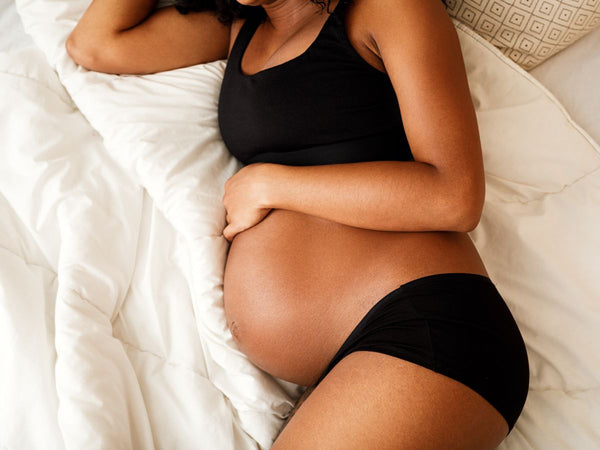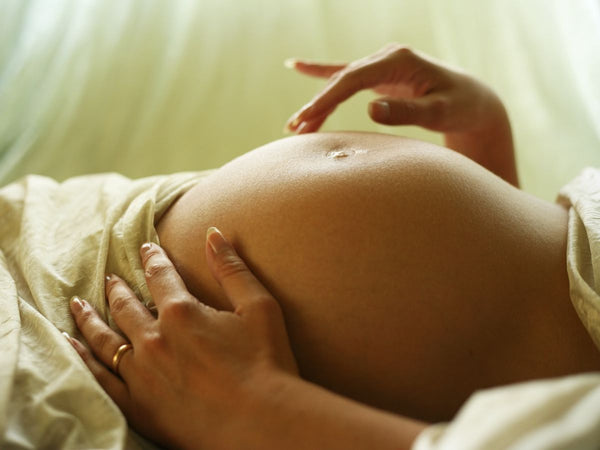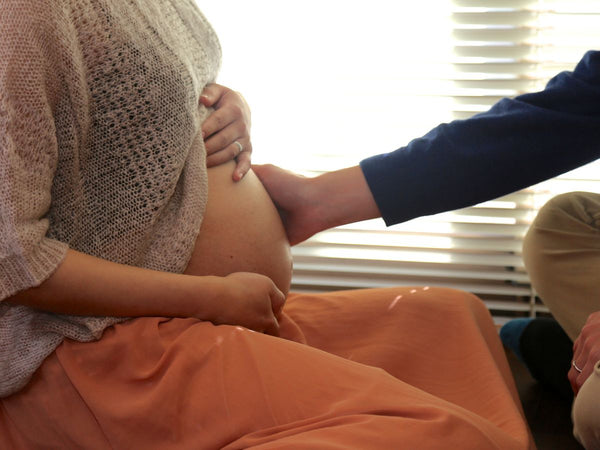Key Points
- Mothers generally feel baby movements around 16 weeks, but it can vary
- In the first trimester, movements might feel uncertain, like butterflies or wind
- Movements evolve with the baby's growth
- Babies have waking and sleeping cycles, and their movements may vary throughout the day
What Your Baby's Foetal Movements Mean
One of the joys of being pregnant is to feel our baby’s movements. But it can seem a long wait until those first little flutters make themselves clear.
At first, it’s common to feel uncertain about what their movements feel like. Early in the second trimester, lots of mothers say they’re not sure if they’ve felt their baby moving, but are open to the possibility that they may have.
Did you Know?
Another name for movements is quickening, which rather sounds like a term from Dickens but it’s kind of cute anyway.

When will I start to feel my Baby Moving?
Generally, mothers feel movements from around 16 weeks into their pregnancy. But some don’t feel anything clear until closer to their 20th week – there’s lots of variation.
In the early days of feeling your baby’s movements, they may be more distinct when you’re lying down or sitting quietly. Being busy and on the run doesn’t allow much time for quiet reflection. And it’s during these times that mothers often feel those first gentle, early flutterings.
Concentrating can help. Some mothers practice their own form of mindfulness when focusing on their baby’s movements.
Some Pregnant Women Say
- Their baby moves more after eating something sweet or cold.
- A cup of coffee or tea or even munching on chocolate gives their baby a burst of energy.
- Their baby moves more after she’s eaten a meal.
- Their baby stops moving the minute their partner puts their hand on her belly.
- Their baby responds to an older child’s voice.
- Their baby wakes up and moves around a lot just when she has gone to bed.
- Their baby responds to loud noises, voices or music.
- They can feel their baby hiccoughing.

Did you Know?
- Movements can cause a mother to wake up - even if she’s been in the deepest of sleeps.
- A baby’s movements can wake a sleeping partner in the same bed. Big body movements and rolls can be strong enough to transmit through the mattress.
- Sometimes it’s possible to identify the baby’s body parts when they’re moving around. A hand, foot or knee can create an impression on the mother’s taut tummy.
- Some women don’t like the feeling of their baby moving. Some say they feel “grossed out” by it and don’t like the way their tummy moves when the baby is moving around.
Common Descriptions of Baby Movements
In the First Trimester
- Uncertain – hard to describe
- Like butterflies
- Like wind
- Indigestion
- Fluttering
In the Second Trimester
- Gentle
- Definitely movements – “I’m sure that’s the baby”
- Tickling my insides
- Reassuring
- Comforting
- Exciting
In the Third Trimester
- Strong
- Definite
- Punching
- Rolling
- Powerful
- Uncomfortable
- Non-stop
- Like an electric shock into to my bladder
But how will I Know it’s my Baby Moving?
First time mothers tend to feel their baby’s movements later than those who’ve been pregnant before. The reason is probably because of experience – what can be interpreted for first timers as a tummy rumble or a bit of wind is instead, rightly attributed to the baby.
Foetal movements match the size of the baby and their development. It’s not until the baby is big enough to be in contact with the mother’s uterus that she can feel her baby moving. Until the 12th week of pregnancy, the uterus is still within a mother’s bony pelvis. By 20 weeks, the top of her uterus is level with her navel.
Essentially, bigger baby = bigger movements!

Ten Foetal Movement Facts
- As the baby’s legs and arms grow, the mother feels more distinct limb movements.
- Up until late in the 3rd trimester, babies do somersaults, rolls and whole body flips. As the due date gets closer there is simply not enough room for them to move around so much.
- Babies who are in a breech, (bottom down) position often have their head up under their mother’s ribs. Feeling a hard bony mass just under the rib-cage isn’t the most comfortable sensation.
- When a mother prods or pokes her tummy, their baby may reciprocate.
- Babies tend to move more at certain times of the day.
- Babies spend long periods of time sleeping.
- Babies go through waking and sleeping cycles.
- Some babies are more energetic than others.
- Sometimes movements can be very uncomfortable for a pregnant mother.
- Babies always seem to kick and move around more when their mother has a full bladder.
What’s Important to Know about your Baby’s Movements
- Understand that on some days, babies move more than on other days. Like us, they have periods of being more active or relaxing.
- Check with your maternity care provider if you are worried about anything to do with yourself or your baby. It’s always important to follow your “gut” feeling.
- Be aware of any change in your baby’s movements. A slowing down or stopping of movements’ is a sign that you need to be checked.
Do I Need to Keep a Kick Chart of my Baby’s Movements?
This depends on your pregnancy and the advice of your maternity care provider. Sometimes women are advised, towards their due date, to keep a record of when they feel their baby moving.
There’s a couple of ways to do this:
- Count how many times you feel your baby moving within a one hour timeframe.
- Count how long it takes for your baby to move ten times.
Be aware there is no normal number of times a baby moves. Each pregnancy is different and every baby has their own unique patterns of movements. A general guide is to feel for ten movements in two hours. If you don’t feel this many, then try again later in the same day. If still not as many as ten, then a check is necessary.
What is important is change. If you feel your baby isn’t moving as much or perhaps as strongly, then it’s wise to be checked.
About the Author:
Jane Barry has qualifications in general, paediatric, immunisation, midwifery and child health nursing. She holds a Bachelor Degree in Applied Science (Nursing) and has almost 30 years specialist experience in child health nursing.
She is a member of a number of professionally affiliated organisations including AHPRA, The Australasian Medical Writer’s Association, Health Writer Hub and Australian College of Children and Young People’s Nurses.
Our Products
-

01. Guide to a Healthy Pregnancy
$55 -

02. Positive Birthing Course
$55 -

03. Infant Feeding Guide
$55 -

04. Baby Sleep Guide - First 12 Months
$55 -

05. Toddler Parenting Course 1 - 3 Years
$55
-
 When to Start Antenatal Classes?
When to Start Antenatal Classes?
Becoming a parent is an incredible milestone, but it comes with a host of changes that can be daunting, especially for first time parents. Antenatal classes are all about offering expectant parents the education they need to make informed decisions, look after their bodies and care for their newborn babies. While you probably already have a long list of things you need to accomplish during your pregnancy, it’s a good idea to make time to attend antenatal classes.
-
 Development Milestones 4-8 Months
Development Milestones 4-8 Months
As they reach the middle of their first year, you'll start to see bigger leaps in their growth and ability!
In this article, we’re going to discuss your baby’s developmental milestones between 4-8 months, and what you can expect along the way.





 When to Start Antenatal Classes?
When to Start Antenatal Classes?
 Development Milestones 4-8 Months
Development Milestones 4-8 Months








